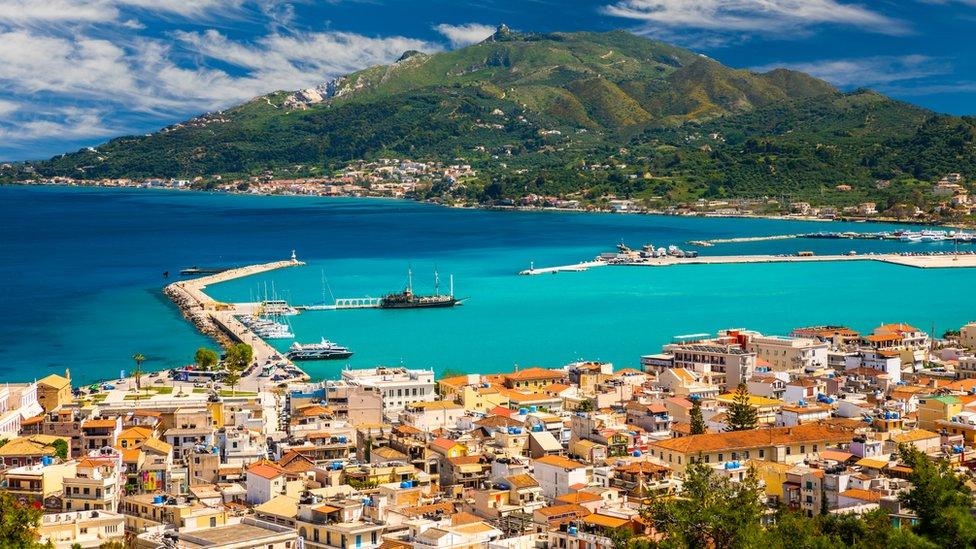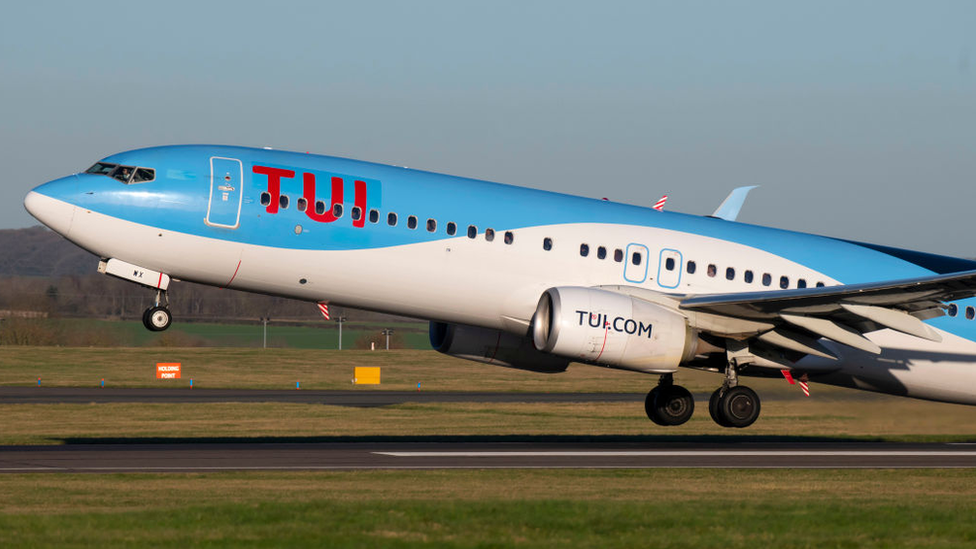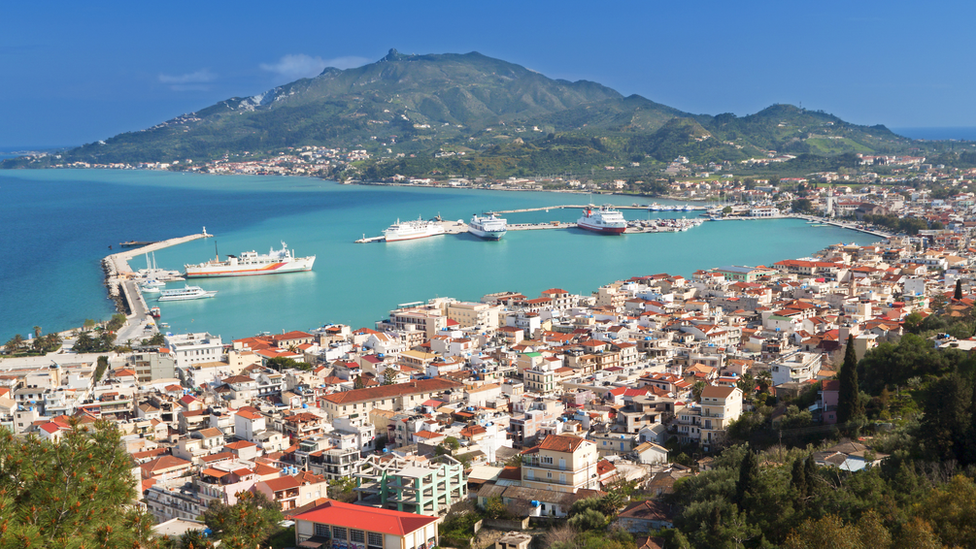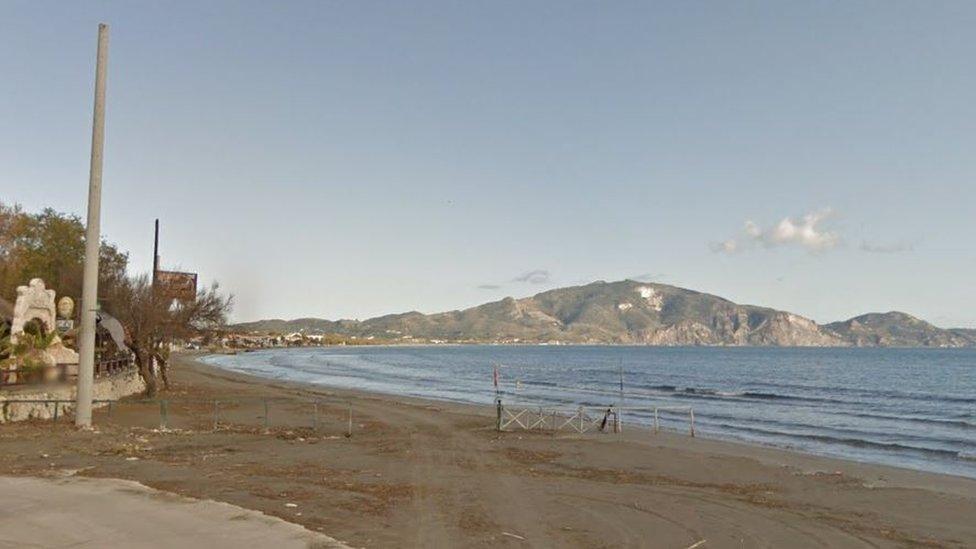Coronavirus: Case identified on Tui flight from Zante to Glasgow
- Published

The passenger returned from the Greek island of Zante
A passenger who flew to Glasgow from a Greek island has tested positive for coronavirus.
The airline, Tui, said it was aware a passenger who had flown from Zante to Glasgow on 23 August had subsequently tested positive.
The details of 14 other passengers who sat near the positive case were passed to contact tracers.
Scottish ministers are imposing quarantine rules on people who are returning from Greece from Thursday.
They say there has been a "significant rise" in cases of Covid-19 brought from Greece to Scotland - especially from the Greek islands.
Masks onboard
Tui said Public Health Scotland told it on 26 August about the positive case.
It identified 14 people who needed to be contacted - they were in the two rows in front and behind the positive cases - and their details were passed to contact tracers.
Tui also immediately contacted the customers directly to let them know.
At the time of Tui flight TOM 1745, the passenger was not displaying symptoms.
Onboard there are precautions in place to hamper the spread of the virus - masks must be worn and Tui said this is enforced by the flight crew.
Passengers must remain in their seats and cannot queue or loiter in the aisle - for example to speak to other passengers or queue for the toilets.
However, physical distancing is not enforced as seats are not left empty.
'Covidiots'

The passengers arrived in Cardiff from the Greek island of Zante on Tuesday
Nearly 200 passengers who were on the Cardiff flight have begun two weeks' self-isolation, after 16 passengers on the flight tested positive.
One traveller told the BBC the Tui flight was full of "covidiots" and "inept crew who couldn't care less". Another claimed there "wasn't much" policing of rules, including making sure customers wore their masks properly.
'Legal requirement'
The Scottish government said people should "think carefully" about making non-essential trips abroad and the list of countries subject to quarantine restrictions is kept under review.
"Anyone who is arriving in Scotland from overseas must self-isolate for 14 days unless they have travelled from a country on the quarantine exemption list," a spokesman said.
"This means staying in their accommodation, even if they don't have symptoms, to help control coronavirus.
"Wherever people have travelled from it is a legal requirement to complete a Passenger Locator Form and provide it to Border Force officials.
"Failure to do so can also result in a fine since this, along with any failure to self-isolate where required, poses a significant risk to wider public health across Scotland."
Meanwhile the government announced that more contact tracers would be recruited to support quarantine efforts.
The £1m funding will pay for 25 additional members of staff who will be contacting passengers returning from places that are not exempt from quarantine.

LOCKDOWN EASING: What changes and when in Scotland?
LOOK-UP TOOL: How many cases in your area?


Are you in Greece? Have you been affected by the new quarantine restrictions? Share your experiences by emailing haveyoursay@bbc.co.uk, external.
Please include a contact number if you are willing to speak to a BBC journalist. You can also get in touch in the following ways:
WhatsApp: +44 7756 165803
Tweet: @BBC_HaveYourSay, external
Please read our terms & conditions and privacy policy
If you are reading this page and can't see the form you will need to visit the mobile version of the BBC website to submit your question or comment or you can email us at HaveYourSay@bbc.co.uk, external. Please include your name, age and location with any submission.
- Published30 August 2020

- Published26 August 2020
